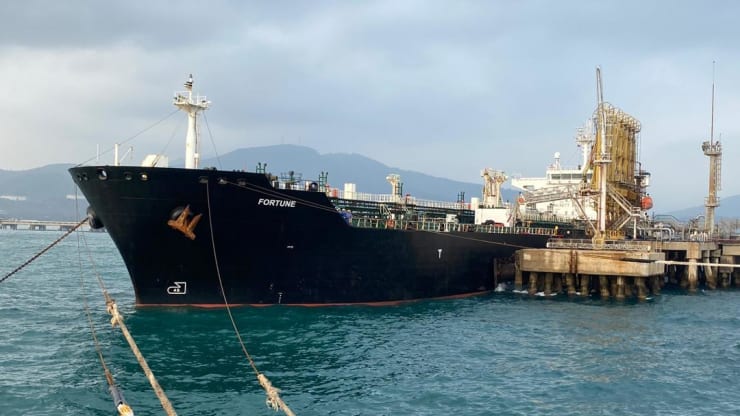Petroleum Minister Bijan Zanganeh says the Iranian gasoline delivered to fuel-starved Venezuela last month was sold to Caracas at market price.
Zanganeh made the comments on Friday in reaction to allegations that Iran has provided Venezuela with gasoline free of charge.
“This is not true. Iran’s gasoline was sold to Venezuela at market price,” he said.
He said Tehran had received sufficient guarantees for the return of its revenues, and part of the money has already been received.
Regarding the continuation of energy trade with Venezuela, the petroleum minister said, “We should wait and see how negotiations between the two countries will proceed.”
Last month, five Iranian oil tankers set off for the Caribbean and delivered about 1.5 million barrels of gasoline to Venezuela which is under US sanctions and virtual economic siege.
In case of an agreement between Tehran and Caracas, Iran is to follow its trailblazing shipment of fuel to Venezuela with regular gasoline sales despite US threats to punish any facilitation of the cargoes.

Iranian flagged fuel tanker ‘Fortune’ is seen after it was docked at El Palito refinery in Puerto Cabello, state of Carabobo, Venezuela, on May 26, 2020. Photo: Anadolu Agency via Getty Images
Bloomberg said this month the US government has decided to avoid a military confrontation and instead prepared sanctions on as many as 50 oil and fuel tankers as part of an effort to cut off trade between Iran and Venezuela.
“The sanctions would be imposed through the Treasury Department and are intended to avoid a US military confrontation with the countries,” the leading financial news provider said, citing a person familiar with the matter.
However, both Venezuela and Iran have shown they are more than willing to cooperate in defiance of the US threats. According to the Washington Post, Venezuela and Iran have “just proved” that the Trump administration’s sanctions are failing.
"By showing that they were able to trade to mutual benefit", Iran and Venezuela “not only successfully circumvented US sanctions; they also scored public relations points in the process,” the paper wrote last month.